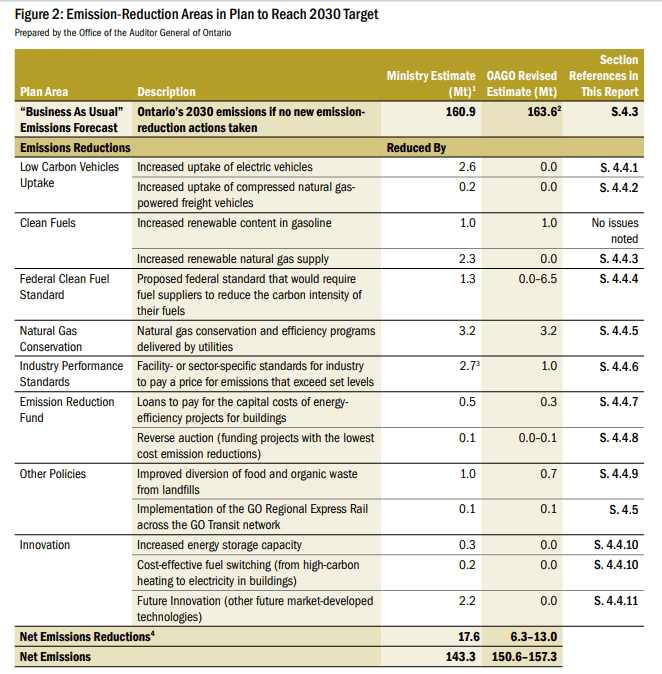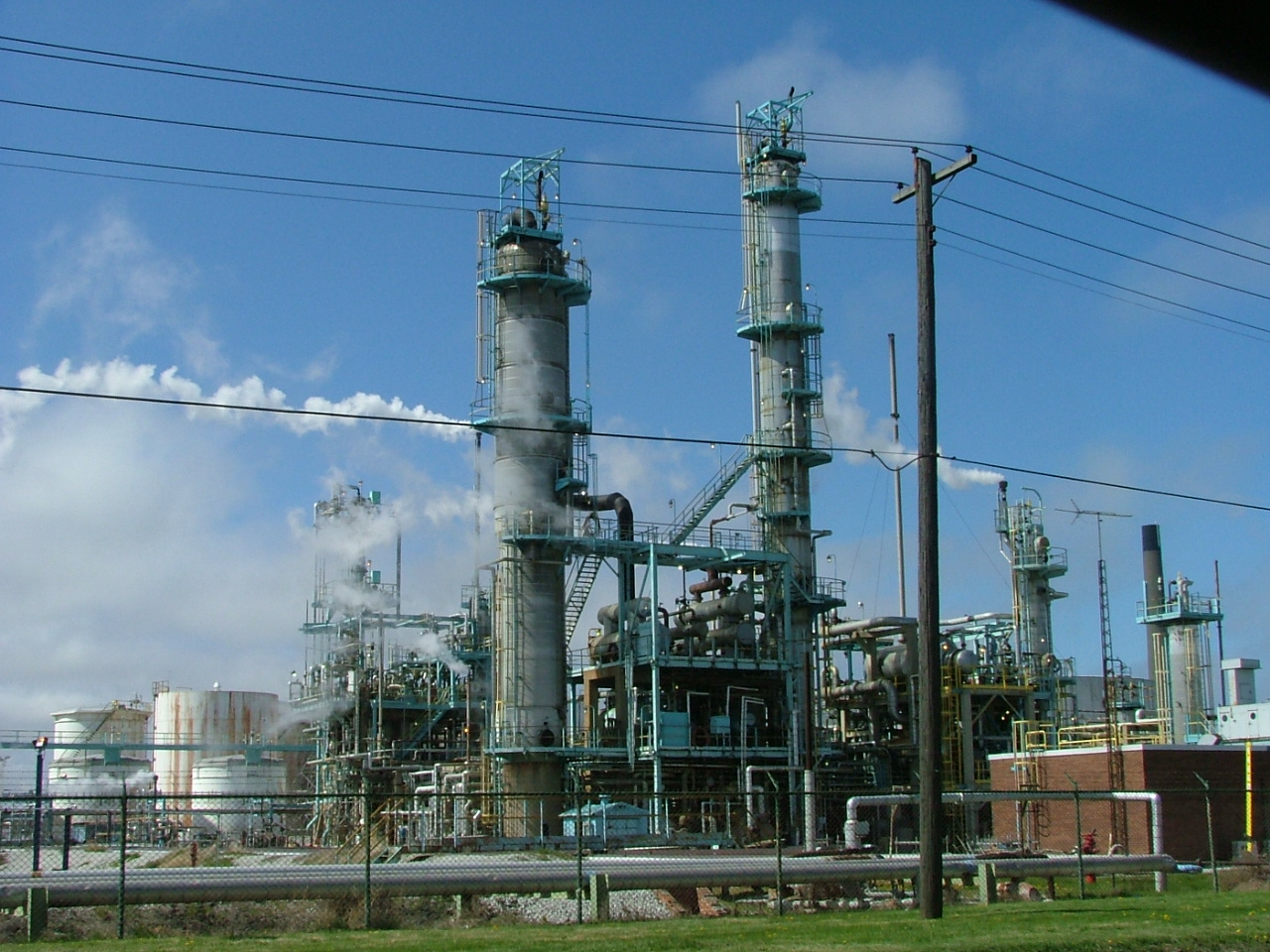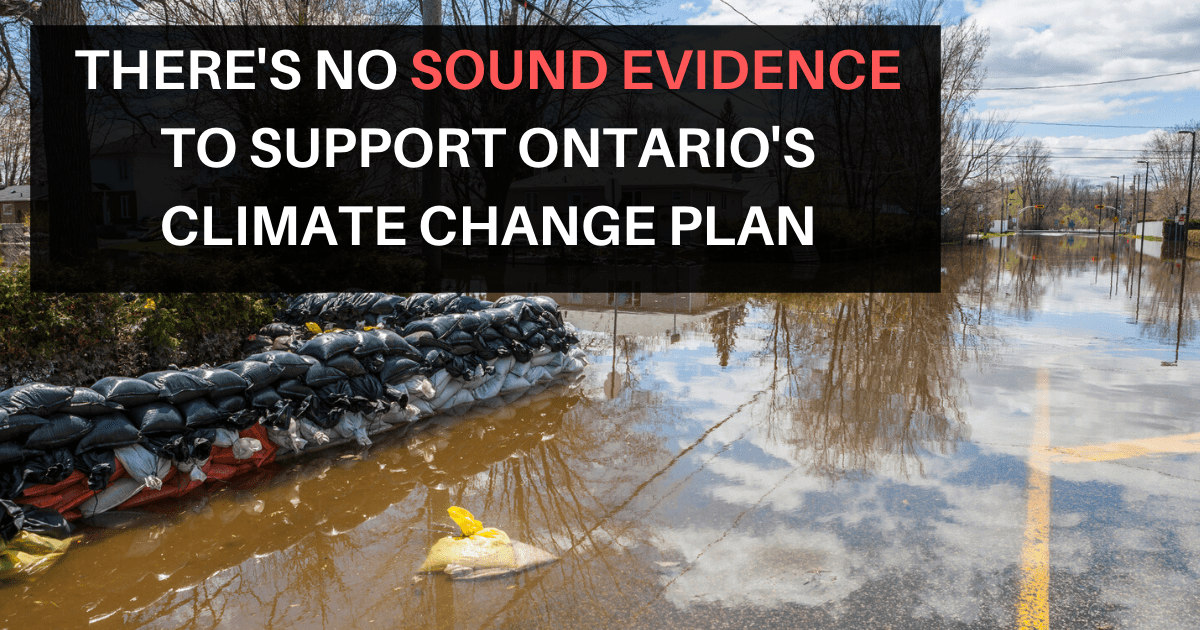The Auditor General’s 2019 Annual Report confirms that Ontario’s climate change plan is too weak to meet its own emissions reduction targets and is not based on sound evidence. This is escalating calls for a complete overhaul of the plan, and a serious rethink of Ontario’s hostile approach to climate action.
 What’s wrong with Ontario’s math?
What’s wrong with Ontario’s math?
Ontario’s Environment Plan includes a number of estimates for how the Ontario government plans to reduce greenhouse gas emissions in line with their new (ahem…much weaker) 2030 target. These are presented in a colourful pie chart which is, as it turns out, based more on fiction than fact.
The flaws in the original calculations are from a mix of double-counting, over-counting, and failing to incorporate the impact of Premier Ford’s cuts to most of the province’s programs that reduced carbon pollution. For example, the Plan’s estimate for emissions reductions from Low Carbon Vehicles Uptake includes reductions from cancelled programs that supported electric vehicle adoption.
Same goes for renewable energy. Remember the $231 million they spent to cancel green energy contracts? Well, it turns out they counted the emissions reductions from every one of these cancelled contracts in their climate change plan. It doesn’t take a math genius to figure out that this doesn’t add up.
Ontario’s climate change plan says it will reduce emissions by 17.6 megatonnes by 2030, a 30 percent reduction from Ontario’s 2005 emissions. The Auditor General’s staff have been kind enough to recalculate these numbers based on real evidence. They conclude that the actions in the plan will completely fail to meet the new 2030 climate target. In fact, when you remove the reductions from federal government actions and just look at provincial action, Ontario’s climate change plan will only reduce emissions by 6.3 megatonnes by 2030 –nearly 2/3 less than what the plan claims it will achieve.
This is almost unbelievable when you consider that Ontario scrapped the previous government’s more ambitious targets last year, setting weaker targets in order to coast on previous action and limp across the finish line. But even after moving this finish line much closer, it looks like they will fall far short. Some would argue that they have dropped out of the race entirely.
Why is this bad?
A failing climate change plan is bad news not only for Ontarians, but it also jeopardizes Canada’s ability to meets its climate targets. Ontario is Canada’s second-biggest polluting province, so inaction here will make it very hard for Canada to get more ambitious about reducing emissions – something the federal government is widely expected to do before the year is out.
The current Ontario government isn’t just dragging their heels when it comes to fighting climate change. They are blocking real action. They fight solutions like carbon pricing in court, quote climate-denying websites, rely on technology that hasn’t been invented yet to reduce emissions, and propose weak plans to let big polluters off the hook. Meanwhile, the impacts of climate change are affecting a growing number of Ontarians.
What’s the best way to fix Ontario’s climate fail?
It’s time to admit that solutions are not going to fall from the sky and magically reduce Ontario’s carbon footprint. Ontario needs to overhaul its weak climate change plan with effective solutions to reduce greenhouse gas emissions based on sound evidence.
It’s also time to admit that our leaders can no longer get away with ignoring or questioning climate change. Ontarians showed they were well aware of this when they voted resoundingly for climate leaders in the federal election. Ontario’s government needs to take this problem as seriously as the people they were elected to represent, or they are likely to find themselves out of a job.
The federal government also needs to hold firm and not approve Ontario’s industrial pollution plan. One of the key takeaways from the Auditor General’s report is that Ontario’s weak pricing plan for big polluters will result in a feeble 1 mega tonne of emissions reductions by 2030 – about 5 per cent of the total 2030 reductions they’re aiming for. The federal government already has a stronger system in place for big polluters in Ontario, which is estimated to reduce emissions by about three times that amount. If the federal government is considering approving this system to replace their own stronger system, they should reconsider. The Auditor General has clearly given Ontario’s plan a failing grade, and the federal government should too.
To read more about how Ontario can accelerate and strengthen the actions in their climate change plan, check out our Failure to Launch report released earlier this fall.
The Auditor General’s math shows that the expected reduction of greenhouse gas emissions in Ontario’s current climate change plan will fall far short of the mark





 What’s wrong with Ontario’s math?
What’s wrong with Ontario’s math?


